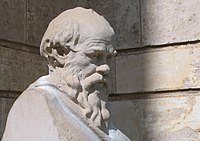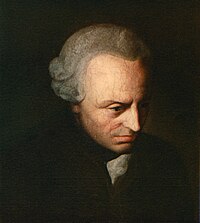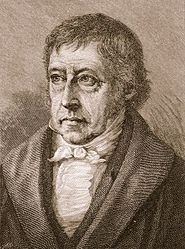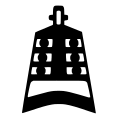User:Y-S.Ko/Wikipedia course/Philosophy
Appearance
Philosophy
[edit]
History
[edit]| Part of a series on |
| Philosophy |
|---|
Ancient
[edit]| Top | High | Mid | Low | NA | ??? |
| 0 | 115 | 219 | 939 | 350 | 0 |
| Part of a series on |
| Socrates |
|---|
 |
| Eponymous concepts |
| Pupils |
| Related topics |
|
|
| Part of a series on |
| Neoplatonism |
|---|
 |
|
|
Medieval
[edit]| Top | High | Mid | Low | NA | ??? |
| 0 | 44 | 136 | 713 | 127 | 1 |
| Part of a series on |
| Augustine of Hippo |
|---|
 |
| Augustinianism |
| Works |
| Influences and followers |
| Related topics |
| Related categories |
 |
| Part of a series on |
| Avicenna (Ibn Sīnā) |
|---|
| Works |
| Thoughts |
| Pupils |
| Monuments |
| Part of a series on |
| Scholasticism |
|---|
 |
| Part of a series on |
| Thomas Aquinas |
|---|
 |
| Part of a series on |
| Jewish philosophy |
|---|
 |
Modern
[edit]| Top | High | Mid | Low | NA | ??? |
| 1 | 107 | 262 | 973 | 199 | 0 |
| Part of a series on |
| René Descartes |
|---|
 |
| Part of a series on |
| Immanuel Kant |
|---|
 |
|
Category • |
 |
| Hegelianism |
|---|
| Forerunners |
| Principal works |
| Schools |
| Related topics |
| Related categories |
Contemporary
[edit]| Top | High | Mid | Low | NA | ??? |
| 1 | 88 | 752 | 3,932 | 232 | 4 |
Eastern
[edit]| Top | High | Mid | Low | NA | ??? |
| 2 | 93 | 223 | 831 | 284 | 0 |
| Part of a series on |
| Confucianism |
|---|
 |
Branches
[edit]Epistemology
[edit]| Top | High | Mid | Low | NA | ??? |
| 1 | 114 | 245 | 407 | 193 | 1 |
Ethics
[edit]| Top | High | Mid | Low | NA | ??? |
| 1 | 221 | 574 | 1,694 | 891 | 9 |
Logic
[edit]| Top | High | Mid | Low | NA | ??? |
| 2 | 156 | 570 | 1,219 | 349 | 14 |
Metaphysics
[edit]| Top | High | Mid | Low | NA | ??? |
| 1 | 146 | 293 | 624 | 271 | 0 |
Aesthetics
[edit]| Top | High | Mid | Low | NA | ??? |
| 0 | 44 | 153 | 664 | 221 | 0 |
Philosophy of mind
[edit]| Top | High | Mid | Low | NA | ??? |
| 1 | 56 | 157 | 336 | 298 | 1 |
Further
[edit]Philosophy
[edit]Philosophy
Aesthetics
[edit]Cynthia Freeland - But Is It Art__ An Introduction to Art Theory (2002)
- Blood and beauty
- Paradigms and purposes
- Cultural crossings
- Money, markets, museums
- Gender, genius, and Guerrilla Girls
- Cognition, creation, comprehension
- Digitizing and disseminating
Epistemology
[edit]Duncan Pritchard - What Is This Thing Called Knowledge_ (2018)
- The Value of knowledge
- Defining knowledge
- Structure of knowledge
- Rationality
- Virtue
- Perception
- Testimony and memory
- A priority and inference
- Problem of induction
- Scientific knowledge
- Religious knowledge
- Moral knowledge
- Knowledge in technology
- Knowledge in education
- Knowledge in law
- Knowledge in politics
- Scepticism about other minds
- Radical scepticism
- Truth and objectivity
Ernest Sosa - Epistemology (2017)
- Descartes’s Pyrrhonian Virtue Epistemology
- Dream Skepticism
- Regress Skepticism
- Knowledge: What It Is and How We Might Have It
- Knowledge as Action
- Varieties and Levels of Knowledge
- The Value of Human Knowledge
- Mind–World Relations: Action, Perception, Knowledge
- Two Forms of Virtue Epistemology
- Knowledge, Time, and Negligence
- Virtue Theory against Situationism
- Virtue Epistemology and a Theory of Competence
- Knowledge and Justification
Ethics
[edit]Harry J. Gensler, Ethics: A Contemporary Introduction (2011)
History
[edit]Anthony Kenny - An Illustrated Brief History of Western Philosophy (2018)
I PHILOSOPHY IN ITS INFANCY
- The Milesians
- Xenophanes
- Heraclitus
- The School of Parmenides
- Empedocles
- The Atomists
- II THE ATHENS OF SOCRATES
- The Athenian Empire
- Anaxagoras
- The Sophists
- Socrates
- The Euthyphro
- The Crito
- The Phaedo
- III THE PHILOSOPHY OF Plato
- Life and Works
- The Theory of Ideas
- Plato’s Republic
- The Theaetetus and the Sophist
- IV THE SYSTEM OF Aristotle
- Plato’s Pupil, Alexander’s Teacher
- The Foundation of Logic
- Poetic
- Moral Philosophy: Virtue and Happiness
- Moral Philosophy: Wisdom and Understanding
- Politics
- Science and Explanation
- Words and Things
- Motion and Change
- Soul, Sense, and Intellect
- Metaphysics
- V GREEK PHILOSOPHY AFTER ARISTOTLE
- The Hellenistic Era
- Epicureanism
- Stoicism
- Scepticism
- Rome and its Empire
- Jesus of Nazareth
- Christianity and Gnosticism
- Neo-Platonism
- VI EARLY CHRISTIAN PHILOSOPHY
- Arianism and Orthodoxy
- The Theology of Incarnation
- The Life of Augustine
- The City of God and the Mystery of Grace
- Boethius and Philoponus
- VII EARLY MEDIEVAL PHILOSOPHY
- John the Scot
- Al-kindi and Avicenna
- The Feudal System
- Saint Anselm
- Abelard and Héloïse
- Abelard’s Logic
- Abelard’s Ethics
- Averroes
- Maimonides
- VIII PHILOSOPHY IN THE THIRTEENTH CENTURY
- An Age of Innovation
- Saint Bonaventure
- Thirteenth-Century Logic
- Aquinas’ Life and Works
- Aquinas’ Natural Theology
- Matter, Form, Substance, and Accident
- Aquinas on Essence and Existence
- Aquinas’ Philosophy of Mind
- Aquinas’ Moral Philosophy
- IX OXFORD PHILOSOPHERS
- The Fourteenth-Century University
- Duns Scotus
- Ockham’s Logic of Language
- Ockham’s Political Theory
- The Oxford Calculators
- John Wyclif
- X RENAISSANCE PHILOSOPHY
- The Renaissance
- Free-will: Rome vs. Louvain
- Renaissance Platonism
- Machiavelli
- More’s Utopia
- The Reformation
- Post-Reformation Philosophy
- Bruno and Galileo
- Francis Bacon
- XI THE AGE OF DESCARTES
- The Wars of Religion
- The Life of Descartes
- The Doubt and the Cogito
- The Essence of Mind
- God, Mind, and Body
- The Material World
- XII ENGLISH PHILOSOPHY IN THE SEVENTEENTH CENTURY
- The Empiricism of Thomas Hobbes
- Hobbes’ Political Philosophy
- The Political Theory of John Locke
- Locke on Ideas and Qualities
- Substances and Persons
- XIII CONTINENTAL PHILOSOPHY IN THE AGE OF LOUIS XIV
- Blaise Pascal
- Spinoza and Malebranche
- Leibniz
- XIV BRITISH PHILOSOPHY IN THE EIGHTEENTH CENTURY
- Berkeley
- Hume’s Philosophy of Mind
- Hume on Causation
- Reid and Common Sense
- XV THE ENLIGHTENMENT
- The Philosophes
- Rousseau
- Revolution and Romanticism
- XVI THE CRITICAL PHILOSOPHY OF KANT
- Kant’s Copernican Revolution
- The Transcendental Aesthetic
- The Transcendental Analytic: The Deduction of the Categories
- The Transcendental Analytic: The System of Principles
- The Transcendental Dialectic: The Paralogisms of Pure Reason
- The Transcendental Dialectic: The Antinomies of Pure Reason
- The Transcendental Dialectic: The Critique of Natural Theology
- Kant’s Moral Philosophy
- XVII GERMAN IDEALISM AND MATERIALISM
- Fichte
- Hegel
- Marx and the Young Hegelians
- Capitalism and its Discontents
- XVIII THE UTILITARIANS
- Jeremy Bentham
- The Utilitarianism of J. S. Mill
- Mill’s Logic
- XIX THREE NINETEENTH-CENTURY PHILOSOPHERS
- Schopenhauer
- Kierkegaard
- Nietzsche
- XX THREE MODERN MASTERS
- Charles Darwin
- John Henry Newman
- Sigmund Freud
- XXI LOGIC AND THE FOUNDATIONS OF MATHEMATICS
- Frege’s Logic
- Frege’s Logicism
- Frege’s Philosophy of Logic
- Russell’s Paradox
- Russell’s Theory of Descriptions
- Logical Analysis
- XXII CONTINENTAL PHILOSOPHY IN THE EARLY TWENTIETH CENTURY
- Henri Bergson
- Husserl’s Phenomenology
- The Existentialism of Heidegger
- The Existentialism of Sartre and de Beauvoir
- XXIII THE PHILOSOPHY OF Wittgenstein
- Tractatus Logico-Philosophicus
- Logical Positivism
- Philosophical Investigations
- XXIV RECENT CONTINENTAL PHILOSOPHY
- The Frankfurt School
- Jacques Derrida
- Jurgen Habermas
- XXV RECENT ANALYTIC PHILOSOPHY
- Elizabeth Anscombe
- W. V. O. Quine
- Donald Davidson
- Peter Geach
- Peter Strawson
- American Metaphysics
- The Cartesian Revival
- Analytical Ethics
- John Rawls
- Richard Rorty
Allen W. Wood, Kant (2005)
- Life and works
- Synthetic a priori cognition
- The possibility of metaphysics
- The transcendental aesthetic: pure sensibility
- The transcendental analytic: pure understanding
- The principles of possible experience
- The transcendental deduction of the categories
- Objects, categories, and schemata
- The principles of pure understanding
- The limits of cognition and the ideas of reason
- Transcendental idealism
- Ideas of reason
- The transcendental dialectic
- The a priori doctrine of the soul
- The antithetic of pure reason
- God as the ideal of pure reason
- The transcendental doctrine of method
- Philosophy of history
- Ethical theory
- Practical Anthropology
- The fundamental principle of morality
- The metaphysical system of duties
- The theory of taste
- Why a third 'critique'?
- Judgments of taste
- Beauty and morality
- The sublime
- Art and genius
- Politics and religion
- The concept of right
- The system of right
- The right of nations and perpetual peace
- Moral faith and religion
Andrew Bowie - Schelling and Modern European Philosophy: An Introduction (1993)
- Introduction
- Situating Schelling
- Metaphor and metaphysics
- Stages in Schelling’s philosophy
- Absolute Beginnings
- Fichte and Spinozism
- Jacobi, Fichte, and the Pantheism controversy
- The ground of judgement
- The Hermeneutics of Nature
- Matter and life
- The productivity of nature
- Nature as visible mind
- The facticity of nature
- The History of Consciousness and the Truth of Art
- The path to the self
- Self-reference and art
- Identity Philosophy
- The identity of the Absolute
- Moving beyond the I: the break with Fichte
- Transitive being and identity
- Identity and ‘différance’
- Schelling, Rorty and Davidson
- Absolute reflection
- The problem of transition
- Freedom, Ontology and Language
- Ground and freedom
- World-making
- Word-making
- Schelling or Hegel?
- Introduction
- Reflection and inversion
- The limits of negative philosophy
- Positive philosophy
- Concept and being
- The logic of reflection
- Non-identity
- Conclusion
See also
[edit]- /General
- /Philosophy
- /Psychology
- /Religion
- /Social science
- /Anthropology
- /Economics
- /Politics
- /Law
- /Political thought
- /Science
- /Mathematics
- /Physics
- /Astronomy
- /Chemistry
- /Biology
- /Earth science
- /Technology
- /Computer
- /Family
- /Medical
- /Diagnosis and Procedures
- /Diseases
- /Preclinical
- /Pharmacology
- /Art
- /Music
- /Language
- /Literature
- /Geography
- /History
- /History/Asia
- /History/Asia/East Asia











